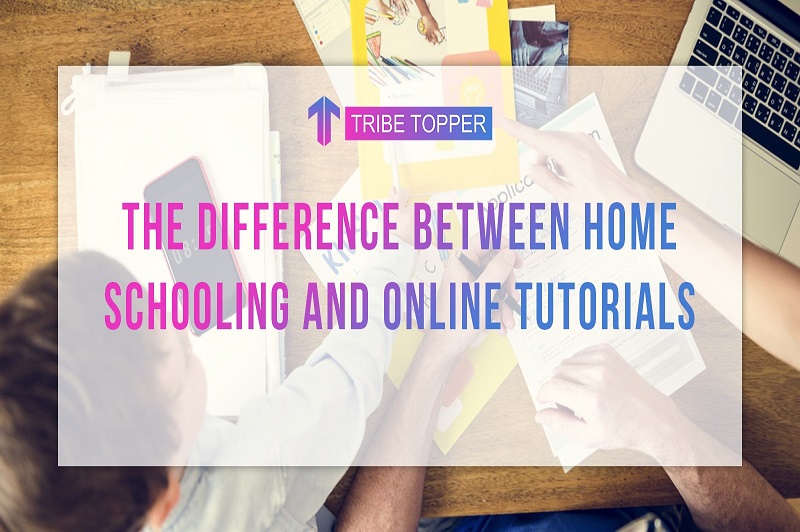Education is a fundamental aspect of a child’s development, and in recent years, alternative forms of education have gained significant attention. Homeschooling and online tutorials are two different approaches to education that can be used as alternatives to traditional classroom-based learning. While there are similarities between them, there are also distinct differences. Let’s explore each approach:
Homeschooling:
Homeschooling involves parents or guardians taking on the role of the primary educators for their children. Here are some Tips for IBDP Board Subject:
Advantages:
- Personalized instruction: Parents can customize the curriculum to focus on their child’s strengths, interests, and areas of improvement.
- One-on-one attention: With homeschooling, children often receive more individual attention from their parents, which can lead to a more personalized and effective learning experience.
- Control over morals and principles: Homeschooling gives parents the chance to instill their morals and principles into their children’s education.
Challenges:
- Time commitment: Homeschooling requires a significant time commitment from the parents or guardians who must act as the primary educators.
- Limited social interaction: Compared to a traditional school setting, homeschooling may limit opportunities for socializing and developing social skills with peers.
- Lack of specialized expertise: Parents may not have expertise in certain subjects or teaching methods, making it challenging to provide comprehensive instruction in all areas.
Online Tutorials:
Online tutorials, on the other hand, involve using online platforms or resources to provide educational content and instruction. Here are some key points:
Advantages:
- Accessibility: Online tutorials offer a wide range of subjects and topics, allowing students to access educational materials from anywhere with an internet connection.
- Expert instruction: Online tutorials often provide access to qualified instructors or subject matter experts who can deliver high-quality instruction in specific areas.
- Interactive learning: Many online tutorials incorporate interactive elements, such as quizzes, videos, and simulations, to engage learners and enhance the learning experience.
Challenges:
- Limited personalization: Online tutorials may not provide the same level of personalization as homeschooling since the instruction is typically designed for a broader audience.
- Lack of social interaction: Online tutorials often lack the face-to-face social interaction that comes with traditional schooling, which can be important for social development.
- Self-discipline and motivation: Students engaging in online tutorials may need to be self-disciplined and motivated to stay on track with their studies without the structure and accountability of a physical classroom.
In this essay, we will delve into these differences, examining the comparative study of characteristics of homeschooling and online tutorials or Mock Papers.
Educational Approach:
Homeschooling is a comprehensive educational approach in which parents or guardians take full responsibility for their child’s education. They design and implement a personalized curriculum tailored to their child’s needs, interests, and learning styles. Homeschooling provides flexibility and individualized attention, allowing students to progress at their own pace. Parents can incorporate various teaching methods, such as hands-on activities, field trips, and experiential learning, to enhance their child’s educational experience.
On the other hand, online tutorials primarily focus on providing instruction and guidance through digital platforms. These tutorials are typically designed by educational professionals and are structured as a series of prerecorded or live video lessons. Online tutorials often follow a specific curriculum, providing a structured learning environment. While some level of customization may be available, it is generally less flexible compared to homeschooling.
Curriculum:
Homeschooling offers a unique advantage of complete curricular freedom. Parents can select from a variety of educational resources, textbooks, online courses, and materials to create a curriculum that aligns with their child’s academic goals and personal interests. This flexibility allows for a more tailored and adaptable educational experience. Parents can also integrate real-life experiences and practical skills into the curriculum, providing a holistic approach to education.
In contrast, online tutorials typically offer a pre-designed curriculum that covers a specific range of subjects or topics. The curriculum is often structured and standardized to ensure comprehensive coverage of essential knowledge and skills. While some online tutorial platforms offer a degree of customization or the option to choose from different courses, the overall curriculum is predetermined by the tutorial provider.
Socialization Opportunities:
One significant distinction between homeschooling and online tutorials lies in the socialization opportunities available to students. In traditional homeschooling, socialization can be organized through various means, such as local homeschooling groups, co-op classes, extracurricular activities, community events, and involvement in sports or arts programs. These activities provide opportunities for students to interact with peers, develop social skills, and build meaningful relationships.
Conversely, online tutorials primarily focus on individual instruction, limiting direct interaction with peers. While some online platforms incorporate discussion forums or interactive elements to facilitate student engagement, the level of social interaction may be limited compared to homeschooling. However, advancements in technology and the rise of online communities have allowed for the development of virtual social networks, enabling online tutorial students to connect with like-minded individuals and foster a sense of belonging.
Parental Involvement:
Another crucial difference between homeschooling and online tutorials is the level of parental involvement. Homeschooling necessitates significant parental engagement as parents serve as the primary educators. They are responsible for selecting the curriculum, planning lessons, providing instruction, assessing progress, and offering guidance and support. Homeschooling parents must be actively involved in their child’s education, dedicating time, effort, and resources to ensure a successful learning experience.
In contrast, online tutorials require less direct parental involvement in terms of instructional responsibilities. Online tutorials are typically led by qualified instructors who guide students through the curriculum and assess their progress. Parents may still need to provide supervision, monitor their child’s engagement, and ensure they complete assignments and meet deadlines. However, the primary instructional responsibilities rest with the online sample paper.
Conclusion:
Homeschooling and online tutorials both offer alternatives to traditional schooling. The choice between the two depends on individual preferences, the needs of the learner, available resources, and the level of involvement parents or guardians are willing and able to commit to their child’s education.

